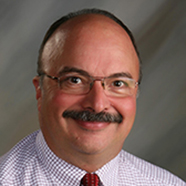Redemption by Jesus of Thomas, the doubter, offers us a message of hope

Tim Irwin
By Tim Irwin
Second Sunday of Easter/April 23
Acts 2:42-47; Psalm 118:2-4,13-15,22-24; 1 Peter 1:3-9; (Sequence) Victimae paschali laudes; John 20:19-31
The Second Sunday of Easter offers us one of most comforting appearances of the Risen Christ — the story of doubting Thomas. These days, when our culture seems to be defined by the plague of skepticism, can there be a more hopeful message than the story of a doubter redeemed?
The first reading from the Acts of the Apostles recounts the earliest days of the apostolic Church. These first believers focused with a single-minded devotion to Christ crucified and risen. Still true to their Jewish roots, they met at the Temple, the most sacred site of Judaism. Then in the privacy of their homes, they broke bread — they celebrated the Holy Mass. This community held all things in common, contributing according to their ability and taking according to their need. They found a way to meet their needs in the here and now that required the least amount of interference with their pursuit of life in the hereafter. Today, religious communities living in accord with the Evangelical Counsels of poverty, chastity, and obedience follow their lead.
The second reading comes from the beginning of the first letter of St. Peter. It seems to answer the question that any contemporary Catholic might ask: What’s the benefit of living life in a religious way? St. Peter explains, “Blessed be the God and Father of our Lord Jesus Christ, who in his great mercy gave us a new birth to a living hope through the resurrection of Jesus Christ from the dead, to an inheritance that is imperishable, undefiled, and unfading, kept in heaven for you.” So, it’s less about material things and more about escaping our attachment to those material things. The loss of attachment comes as a by-product of falling in love with Jesus.
Peter continues: “Although you have not seen him you love him; even though you do not see him now yet believe in him, you rejoice with an indescribable and glorious joy, as you attain the goal of your faith, the salvation of your souls.” That brings us to Thomas.
“MY LORD AND MY GOD”
A certain Sunday morning shortly after Easter found the apostles behind locked doors in fear that they might also experience the wrath of Rome. The Risen Christ appears and greets them with “Peace be with you.” Apparently, some of the apostles harbored some unspoken doubts because Jesus shows them his wounds.
Jesus again says, “’Peace be with you. As the Father, has sent me, so I send you.’ And when he had said this, he breathed on them and said to them, ‘Receive the Holy Spirit. Whose sins you forgive are forgiven them, and whose sins you retain are retained.’”
Thomas was not with the apostles when Jesus appeared and he reacted to the news with a suspicion worthy of any contemporary skeptic. “Unless I see the mark of the nails in his hands and put my finger into the nail marks and put my hand into his side, I will not believe.” The following Sunday, Jesus appears again inviting Thomas to overcome his doubt. “Put your finger here and see my hands, and bring your hand and put it into my side, and do not be unbelieving, but believe.”
Thomas was a good person. He just didn’t know for sure the truth concerning Jesus. People today also seek the truth about Jesus and an array of novel answers can be had. The Catholic Church founded on the apostles and preserved by their successors, the bishops, gives us the truth. This Sunday at the Holy Mass, let us be confident in our faith and receive Holy Communion with the words of St. Thomas upon our hearts, “My Lord and my God.”
Tim Irwin teaches at Peoria Notre Dame High School, where he chairs the Theology Department. He is a member of St. Mark Parish in Peoria.





